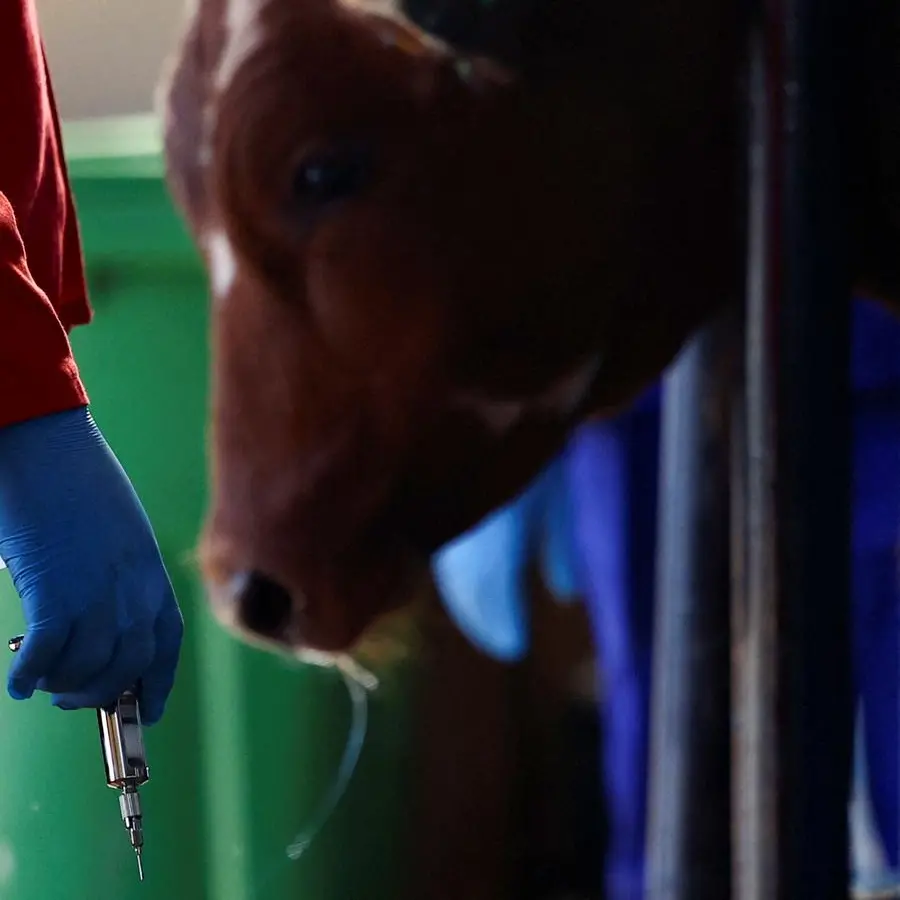PHOTO
Doctors in the UAE highlight that there has been a significant rise in patient footfall due to the recent rapid changes in temperature as compared to the previous month.
In the final week of January and the initial days of February, temperatures plummeted to a chilly 5°C in certain regions of the UAE.
A series of heavy to moderate showers spanning across the country has prompted residents to cling to their warm clothing.
Evenings have particularly been windy with additional forecasts for such weather conditions.
However, the vagaries of the weather are contributing to a rise in respiratory infections such as the flu and the common cold, resulting in fever. Additionally, the fluctuating weather is also triggering seasonal allergies.
Get medical advice early
Children and adults are walking into the clinics displaying symptoms such as coughing, a runny nose, congestion, sore throat, and even high-grade fever.
Dr Fatma Elzahra, Specialist Pediatrician, Thumbay University Hospital said, “During the peak of flu season in the UAE, which spans from October to February, we often see kids presenting themselves with high-grade fevers. These can be caused by various viruses or bacteria floating around, including Influenza A or B, Adenovirus, and even the Epstein–Barr virus, which can feel just like the flu."
Medics say that symptoms can start in a subtle manner, such as with a runny nose. “It's easy to chalk it up to something harmless like being in an air-conditioned room or picking up germs on the bus. But it's better to be safe and get professional medical advice early on.”
When it comes to why these fevers happen, she explained “it's mostly due to respiratory infections, usually viral ones like colds or the flu. But bacterial infections like ear infections, sinus issues, or even urinary tract infections are common too these days.”
Spreading allergens
Several airborne allergens could be to blame. Doctors stressed that even air conditioning units can spread bacteria and viruses affecting both children and adults.
Dr Joseph K. Joseph, Internal Medicine Specialist, Zulekha Hospitals, Dubai said, “Around 10-15 per cent of patient footfall has increased after the cold weather has intensified. There are multiple variable factors for this rising number of fever and cough cases. One is pollution, then the vagaries of the weather. On one day it is sunny, the next day it's rainy, and the day after it is cold. So, frequent fluctuations in temperature are flummoxing for the body's immune system meaning the body cannot adjust to that frequent temperature variations. In the afternoon it's sunny, but at night it becomes cold, and one has to wear a jacket.”
“Sometimes, people go on a desert safari and are exposed to dust and fumes. Another important factor that determine may be the filter inside air conditioners need to be cleaned every three months. People fall sick because there is no proper maintenance of ACs,” he added.
Influenza A or B
Healthcare professionals describe that it starts with a mild fever, but if the patient fails to undergo effective treatment within the initial two to three days of the ailment, it could get severe.
Dr Atul Rane, Specialist Paediatrics, Aster Clinic, Bur Dubai (AJMC) said, “Upon investigation of such cases, more than 70-80 per cent of the time, fever is found to be due to a viral infection, which is self-limiting and recovers spontaneously over five to seven days. Viral infections currently identified are 30-40 per cent Influenza A or B virus.”
High fever
Due to the weather change, children are reporting high fever with temperatures above 38°C.
Dr Doaa Fathy, Specialist Peadiatrician, Prime Medical Center, Al Nahda Branch, Sharjah said, “High fever is caused due to viral causes such as cold, flu, hand foot mouth disease, and chickenpox among others. It also happens due to bacterial causes such as tonsillitis, ear infection, urinary tract infection, chest infections like bronchitis, and Pneumonia. Parents should worry if a child has a persistent fever of more than 40°C and is not responding to treatment.”
Adults are advised to closely monitor their children for symptoms such as fatigue, lethargy, unresponsiveness, abnormal movements, and difficulty breathing.
Dr Syed Adnan Munaf, Consultant Pediatrics, Saudi German Hospital Dubai, said, “Most of these viruses cause respiratory symptoms like cough, cold, runny nose, reduced appetite with a fever. These illnesses are usually self-limiting and not usually a cause for concern. However, parents should seek medical attention if the fever lasts beyond five days.”
Copyright © 2022 Khaleej Times. All Rights Reserved. Provided by SyndiGate Media Inc. (Syndigate.info).





















